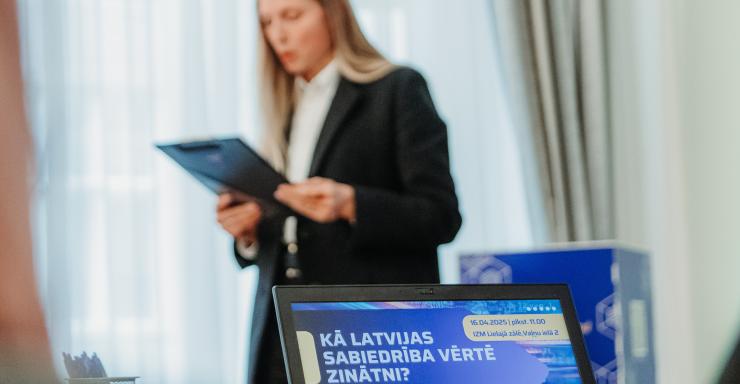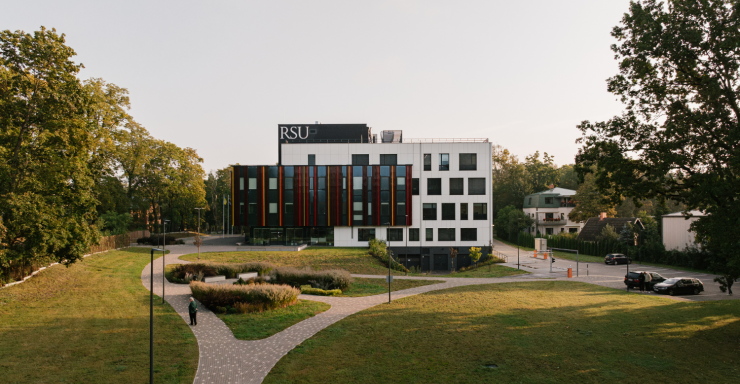To learn more about the sports technologies developed by scientists at Riga Technical University (RTU) and how they could help representatives of Latvia’s luge sports achieve better results, a delegation from the Latvian Luge Federation visits RTU.
RTU scientists and engineers, including those from RTU Liepāja Academy, collaborate with colleagues from the University of Latvia and Riga Stradiņš University (RSU), including RSU’s Latvian Academy of Sport Education, on the national research program “Sports.” The project, titled “Innovations, Methodologies, and Recommendations for Sports Sector Development and Management in Latvia” (IMRSportsLV), focuses on developing sports technologies. The aim is to enhance performance in competitive sports by creating tools to test and improve the material properties of equipment used in technical sports disciplines.
Collaboration Highlights
During their visit, representatives of the Latvian Luge Federation—including President Klāvs Vasks, Vice President Dace Gods Romanovska, Manager Daniels Fogels, and Coach Zintis Šaicāns—were introduced to research conducted on surface geometry and friction measurements. These studies, carried out multiple times at Finland’s Olympic Research Center in Vuokatti, examine how micro- and macrogeometry, materials, wax application, thermal treatment, and laser texturing impact sliding performance. The findings aim to refine innovative steel treatment technologies and identify improvements for sports equipment.
To enable such large-scale experiments under conditions simulating competition, RTU plans to construct a large tribometer in its student campus in Ķīpsala. Scientists shared the design of the tribometer and explained the types of studies it would support. Such experimental devices are rare worldwide.
Advanced Research Initiatives
RTU scientists are also:
- Simulating and modeling the aerodynamic properties of various materials.
- Planning sled prototype experiments in a wind tunnel.
- Analyzing high-performance materials for sports equipment and their dynamic properties.
- Developing a sensor system in collaboration with University of Latvia colleagues to analyze real-time athlete and sled movements on the track.
High-performance computing (HPC) infrastructure plays a key role in this research. According to Jānis Lungevičs, lead researcher at RTU’s Institute of Mechanical Engineering and Biomedical Engineering and head of the Mitutoyo Metrology Laboratory, this infrastructure, combined with RTU’s extensive expertise, elevates the quality of the research.
Longstanding Partnership with Sliding Sports
For years, RTU scientists and engineers, primarily from the Faculty of Civil Engineering and Mechanical Engineering and the Sports Technology Center of RTU’s Science and Innovation Center, have collaborated with Latvian sliding sports representatives. Their work focuses on enhancing sleds and equipment, helping athletes achieve higher results and become more competitive on the global stage.

